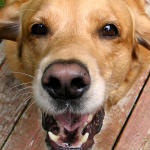Coccidia
Coccidia are microscopic parasites. Not worms like many parasites, but single celled organisms (similar to amoeba). The wet season brings out coccidia in many different species, including kittens, puppies, wallabies, birds, and lizards.
The immune system of healthy adult animals usually keeps coccidia in check. Coccidia in low numbers don’t cause any problems at all and are often detected in the faeces of healthy animals as an incidental finding.
However, a heavy burden of coccidia causes a watery diarrhoea which dehydrates your pet and can be life-threatening, especially in young animals. Coccidia destroy the cells that line the intestine, causing the animal to lose fluid and some blood. In severe cases the dehydration can kill or occasionally the coccidia can spread to the brain and cause potentially fatal seizures.
There are many different types of coccidia. They are usually species specific which means each type of coccidian infects only one type of animal. Coccidia cysts (parasite eggs) are shed by infected animals in their faeces. They can even be shed by animals that are not showing any signs of sickness. As a result, the environment can become full of coccidia over time.
Coccidia cysts are very robust and can survive well in the environment for a long time. They build up in numbers over time so they are more common in locations which have housed many individuals of the one species. After a carer has reared a number of joeys, their backyard can become full of coccidia cysts. The same applies to a back yard that has had a lot of puppies or kittens.
Coccidia are a common parasite and are not necessarily a sign of poor husbandry. A contaminated environment simply means there have been many of the one species in a particular place.
We do not have any medicine that will kill coccidia; only the patient’s own immune system can achieve that. But we can give medicines that stop the coccidia from multiplying and causing illness. Once the numbers of coccidia stop growing, it is easier for the patient’s immune system to kill off the remaining coccidia.
If your pet develops watery diarrhoea, call for an appointment to see one of our helpful vets.



